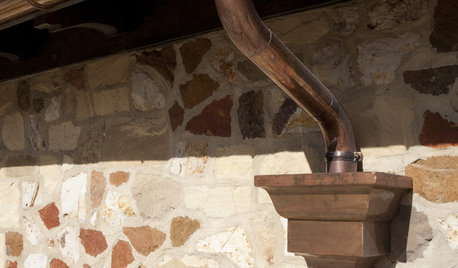BT versus Winter Moths; which brands?
Persimmons
9 years ago
Related Stories

HOUSEKEEPINGProtect Your House From Winter Water Damage
Avoid costly repairs by learning to spot potential problem areas before water damage is done
Full Story
MOST POPULAR5 Remodels That Make Good Resale Value Sense — and 5 That Don’t
Find out which projects offer the best return on your investment dollars
Full Story
WINTER GARDENINGPruning Secrets for Exquisite Roses
Encourage gorgeous blooms year after year with this time-tested advice on how to prune your rosebush in winter for health and shape
Full Story
HOUSEPLANTS8 Essentials for Healthy Indoor Plants
Houseplants add so much to our homes — and can thrive when grown in the right conditions. Keep these tips in mind
Full Story
HOUSEKEEPINGWhat's That Sound? 9 Home Noises and How to Fix Them
Bumps and thumps might be driving you crazy, but they also might mean big trouble. We give you the lowdown and which pro to call for help
Full Story
LIGHTINGWhat to Know About Switching to LED Lightbulbs
If you’ve been thinking about changing over to LEDs but aren't sure how to do it and which to buy, this story is for you
Full Story
PHOTO FLIP60 Kitchen Sinks With Mesmerizing Views
Check out this parade of views from the kitchen sink and tell us: Which offers the best backdrop for doing the dishes?
Full Story
FLOORSWhat's the Right Wood Floor Installation for You?
Straight, diagonal, chevron, parquet and more. See which floor design is best for your space
Full Story
GRAYChoosing Paint: How To Pick the Right Gray
Which Version of Today's 'It' Neutral Is For You?
Full Story
KITCHEN CABINETSKitchen Cabinet Color: Should You Paint or Stain?
Learn about durability, looks, cost and more for wooden cabinet finishes to make the right choice for your kitchen
Full StorySponsored
More Discussions







prairiemoon2 z6b MA
pixie_lou
Related Professionals
Accokeek Landscape Architects & Landscape Designers · Redondo Beach Landscape Architects & Landscape Designers · Goodlettsville Landscape Contractors · Midland Landscape Contractors · New Braunfels Landscape Contractors · North Lauderdale Landscape Contractors · Palos Hills Landscape Contractors · Ankeny Decks, Patios & Outdoor Enclosures · Huntington Decks, Patios & Outdoor Enclosures · Lakewood Decks, Patios & Outdoor Enclosures · Palmetto Decks, Patios & Outdoor Enclosures · Pataskala Decks, Patios & Outdoor Enclosures · Shirley Decks, Patios & Outdoor Enclosures · South Miami Heights Decks, Patios & Outdoor Enclosures · Southampton Decks, Patios & Outdoor Enclosuresdiggingthedirt
diggingthedirt
prairiemoon2 z6b MA
Lalala (zone 6b)
Steve Massachusetts
tree_oracle
prairiemoon2 z6b MA
PersimmonsOriginal Author
prairiemoon2 z6b MA
prairiemoon2 z6b MA
Steve Massachusetts
PersimmonsOriginal Author